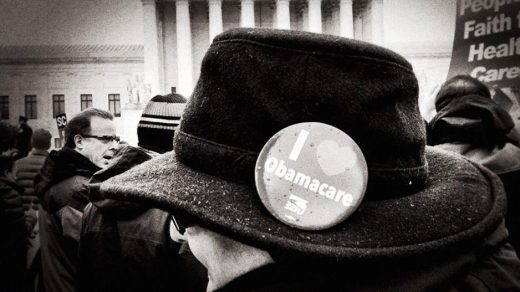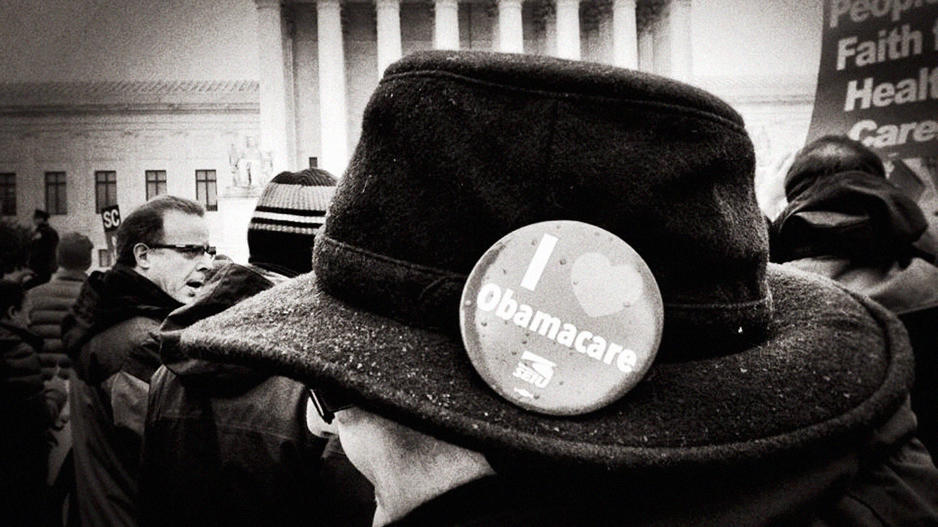Will 18 Million Americans Soon Lose Their Health Insurance?
The Affordable Care Act (better known as Obamacare) has been a political punching bag for the GOP since it passed in 2010, with the House voting to rescind it more than five dozen times. Now, President-elect Donald Trump—who once called the law a “catastrophe”—is in a position to get the job done.
Even its most fervent supporters admit that the ACA has its problems, but it also served an important purpose in providing health insurance for millions of Americans. It also prevented insurance companies from denying coverage based on pre-existing conditions, like chronic ailments.
In the wake of Trump’s unexpected win, policy experts are wondering if Trump will make good on his campaign promise to repeal the ACA—and what he’ll replace it with. According to an independent analysis by the nonpartisan group Center for Health and Economy, Trump’s plan would leave 18 million people uninsured. It would also do little to stem health care costs. Rand Corp. has predicted that by 2018, Trump’s health plan would add nearly $6 billion to the deficit, therefore having little impact on reducing health care costs.
Despite that, some are convinced that Trump will move ahead with plans to dismantle the ACA. Senate Majority Leader Mitch McConnell confirmed on Wednesday that repealing the law is “pretty high on our agenda.”
“They (the Trump administration) could do it in a couple different ways,” says Paul Howard, director of health policy at the Manhattan Institute, a conservative Think Tank. “They could approach it in a bipartisan way that brings Democrats into the discussion,” he explains. A full repeal would require 60 votes in the Senate to overcome a filibuster, which would involve a handful of Democrats to get on board. Another option is a budgetary maneuver known as reconciliation, which is a more narrow pathway to defund the subsidies.
“Then of course, there’s the neutron bomb, which involves a full repeal and replace on a straight-up party line vote,” he says. “We’ll pass our own without Democratic support.” The ready-made budget bill that passed last year with Republican support would have repealed Medicaid expansion and the subsidies for low and middle-income Americans if President Obama hadn’t vetoed it.
But Howard is convinced that Republicans will need to find an alternative that doesn’t leave so many Americans in the lurch.
“The reality is (many of) the provisions are pretty popular,” he says. “And there’s the political reality of midterms, which are two years away.”
One option is to leverage Speaker Paul Ryan’s health care plan, which borrows many aspects from the Affordable Care Act. Micah Weinberg, president of the Bay Area Council Economic Institute, describes these policies “85% of Obamacare.” The Washington Post‘s editorial board recently described this plan as “hard on the poor, old, and sick.”
It’s unclear how insurance technology startups like Oscar Health and Stride Health will fare. These companies were founded in the heady days of health care reform. Although, it’s worth noting that one of Oscar’s founders is Josh Kushner, Ivanka Trump’s brother-in-law.
“We can’t speculate on what the election outcome means for the health care industry,” Oscar Health said in a statement.
“Fundamentally, we hope and expect that the new administration will keep the spirit of consumer choice and competition alive in the marketplace, which is a world where we have done pioneering work—and, are ultimately both prepared and motivated to participate.”
Weinberg, who works closely with health-technology startups, says the coming years will not be “good for innovation,” especially if policymakers opt to re-litigate basic rights and financing structures.
What also remains to be seen whether a Trump administration will continue to push health providers to shift away from a fee-for-service revenue model, which rewards providers for expensive tests and procedures, to a more outcomes-based approach. Much of that work is spearheaded at the Center for Medicare & Medicaid Innovation (CMMI) Center.
“The knee-jerk reaction will be to scrap CMMI,” says one former senior White House official at the Department of Health and Human Services, who requested anonymity. “If they stop and think for a second, they’ll preserve it.” This person said that much of this work is centered on increasing competition and choice for patients, which should sit squarely in a Republican agenda.
Another area of uncertainty is the $215 million Precision Medicine initiative, and funding for scientific research in general. After his son’s death from cancer, Vice President Joe Biden made it a major priority to use the White House’s platform to support researchers in developing new therapies that takes into account individual differences in people’s genes, environments, and lifestyles.
“I’m personally disappointed that a platform that denied scientific truth and seemed at great odds with scientific thinking has prevailed,” says medical geneticist and physician-scientist Robert Green, who has been involved with the precision medicine efforts.
“I wait with some trepidation for what will happen with the new administration.”
Others say that these efforts will likely continue when Trump takes office.
“Precision medicine in particular has been a bipartisan issue of late,” says Amy Abernethy, an oncologist and chief medical officer at Flatiron Health. “It has been seen as an important way to advance patient care.”
related video: Will The Affordable Care Act Survive This Election?
Fast Company , Read Full Story
(12)







